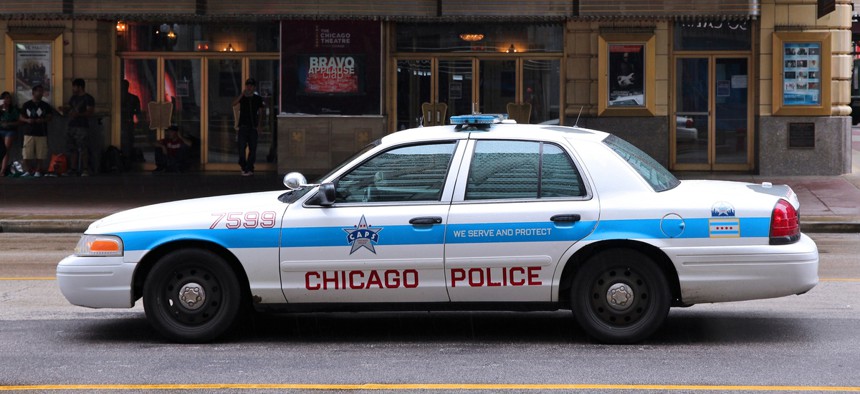How Gun Violence Decreased in Chicago

Chicago police announced 15 consecutive months of declining gun violence. Shutterstock
May was the city's 15th month of declining gun violence, which police attribute to increased hiring, strengthened community policing efforts and investments in technology.
May marked the 15th consecutive month of declining gun violence in Chicago, a trend police attribute to ramped up hiring of officers, improvements in community policing strategies and investments in technology, including predictive crime software and gunshot detection systems.
Last month saw a 21 percent decline in murders compared to May 2017 and a 5 percent drop in “shooting incidents,” according to the Chicago Police Department. So far this year, the city has had 500 fewer shooting victims and a 16 percent drop in murders than in the same period in 2016, Chicago’s deadliest year in nearly two decades.
ShotSpotter, a gunshot detection system that alerts police to when and where a gun has been fired by measuring the distance of the noise from its sound sensors, has been instrumental in the dip, officials said.
"ShotSpotter is probably key to that to what we're doing here," First Deputy Superintendent Anthony Riccio, the Chicago Police Department’s second-in-command, told MSN.com. "Officers get that notification right away to cell phones that they have in their cars and they're able to respond to those areas."
The city has also increased its predictive policing efforts in the form of Strategic Decision Support Centers, a partnership between the police department and the University of Chicago's Crime Lab. At the centers—placed in 13 of the city's 22 police districts—civilian analysts and police scrutinize data from gunshot-detection systems, surveillance cameras and computer programs with the goal of identifying places where violence is most likely to break out.
An increased emphasis on community policing, where beat officers get to know the people in the neighborhoods they patrol, has also been key.
Police Superintendent Eddie Johnson said the importance of community support "just can't be understated."
"The community has now re-engaged with the police department and are helping us to reduce the violence," Johnson told CNN affiliate WLS-TV.
The statistics are promising, but the true test will come this summer, as crime tends to increase during the warmer months, according to Arthur Lurigio, a professor of psychology and criminal justice at Loyola University Chicago.
"We have experienced a cold April, and the warm weather season is just on its way, and that is when shootings and homicides are at their highest levels," he told CNN in April. "The true test will be from now until Labor Day.”
Kate Elizabeth Queram is a Staff Correspondent for Government Executive’s Route Fifty and is based in Washington, D.C.
NEXT STORY: Housing Affordability Rises on the National Agenda





